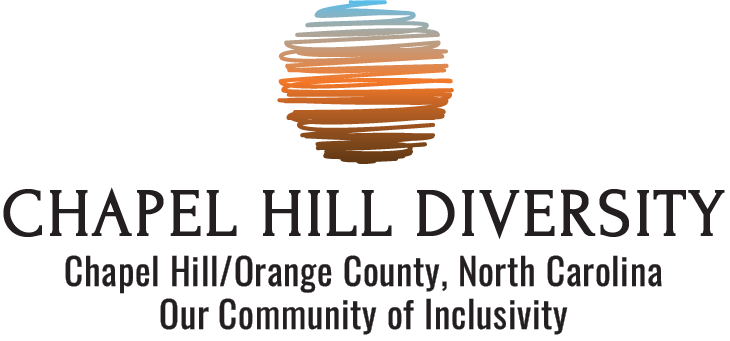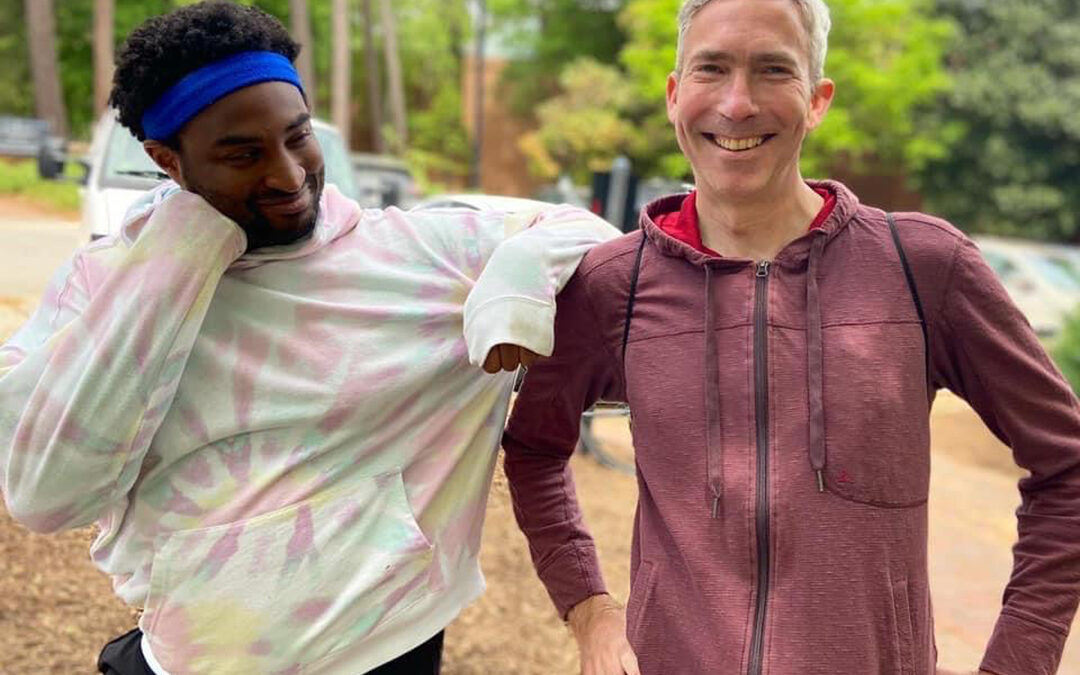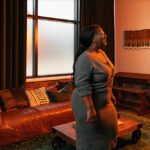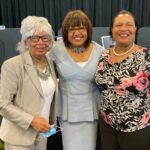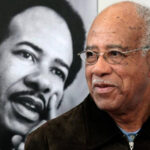Tar Heels Help Preserve the History of Local Black Communities
Carolina students are helping the Marian Cheek Jackson Center for Saving and Making History curate oral histories from members of Black communities in southern Orange County.

Korie Dean
By Korie Dean, University North Carolina Chapel Hill Communications. Updated Monday, February 21st, 2022. Originally posted, Thursday, May 6th, 2021
Chapel Hill and Carrboro’s historically Black communities — especially the Northside community — have a rich and abundant history with deep ties to civil rights and social justice.
Preserving that history is one of the goals of the Marian Cheek Jackson Center for Saving and Making History, located near Carolina’s campus on West Rosemary Street.
“The work that we do is rooted in oral history,” said George Barrett ’14, the Jackson Center’s executive director.
Carolina students have had an opportunity to contribute to the center’s work as part of the University’s “Race and the Right to Vote in the United States,” an APPLES Service-Learning course in the College of Arts & Sciences’ political science department. Through the class, the students get a firsthand look — and listen — at history by serving as oral history processors for From the Rock Wall, an oral history website about Black Life in southern Orange County, housed at the Jackson Center.
The course examines how institutions have allowed the disenfranchisement of Black people and people of color in the U.S. throughout history. It also requires students to engage in a 30-hour public service experience related to the course’s themes.
Students working with the Jackson Center have processed oral histories by writing transcripts, abstracts and tape logs to accompany the histories on the From the Rock Wall website.
“Students brought the necessary assistance of doing a lot of the processing,” Barrett said. “It can be a bit tedious, but it’s necessary to be able to have those oral histories fully processed.”
Clay Morris, a junior majoring in journalism and political science who took the course last spring, chose to work with the Jackson Center after hearing a presentation about the project.
“As a Black person myself, I was really blown away by all that I didn’t know about Black Chapel Hill or just Black history around Carolina,” Morris said. “I was very intrigued by the wealth of knowledge that the Jackson Center has to offer.”
Residents featured in From the Rock Wall talk about everything from the fight for civil rights in the 1960s to more recent issues, such as gentrification.
But, Morris said, there is a key theme to them all.
“The most binding theme, and the most common theme, is the sense of community among all of the Black people who used to live and still do live in Black Chapel Hill,” Morris said. “There was this certain cohesiveness because of the size of the community, and also this understanding that they had to lean on each other in ways that I think Black people still do today, but in this way that I think is very unique to Chapel Hill because of the stories and the connections.”
While oral histories are often collected as academic fieldwork and housed at various universities or archives, From the Rock Wall is a community-owned platform of oral history, which gives those connected with the Northside community agency in curating and preserving their own history. As such, it’s ongoing. Barrett and the team at the Jackson Center hope that it will be continually updated, allowing residents, family members and all those connected to the Black communities of southern Orange County to record and shape their histories for generations to come.
“It’s really important that these histories are not housed in an institution but are accessible to the community and run by the community,” Barrett said.
Some of that history is closely intertwined with the University, such as in 1969, when Black residents partnered with members of the Black Student Movement and led the fight for improved wages and working conditions for campus food workers.
Unearthing that relationship has helped some students realize the deeper relationship between the University and its students with long-time Black residents.
“When you inject yourself into a community that is so intensely tight-knit and so connected, you should at least have a little bit of knowledge or understanding of where you’re going, and what you’re interrupting and how you can try your best to not cause harm,” Morris said. “I think that this project, when people go through it, they’ll have part of the knowledge and experience necessary to have that reverence and respect for the area and for its history.”
Barrett echoed that sentiment. “It’s really important for the larger community, especially the University community, to know this history exists, and to know that there still is and has always been a thriving, abundant, incredibly creative Black community that has fought for justice for a long time and continues to fight against injustice now,” he said.
Learn more https://fromtherockwall.org
